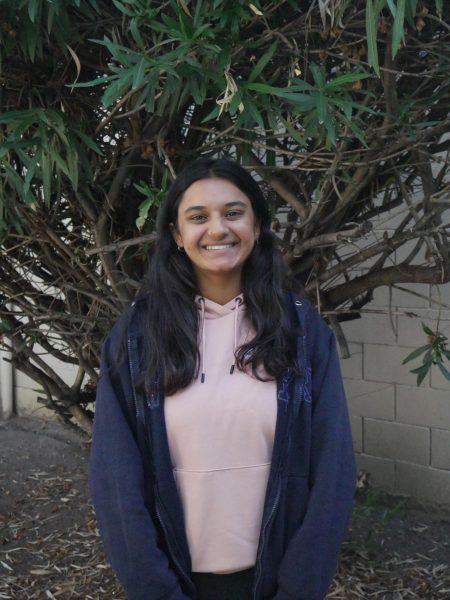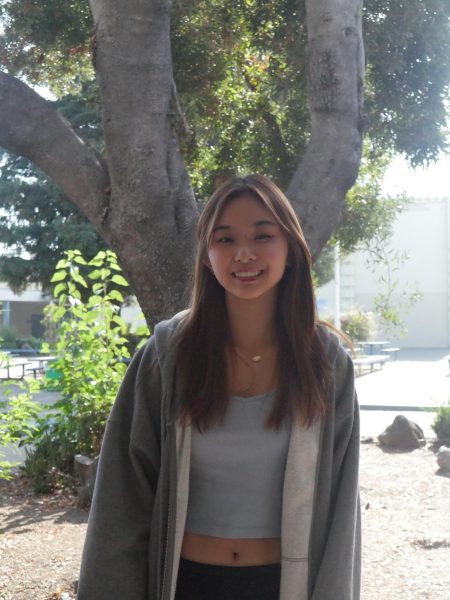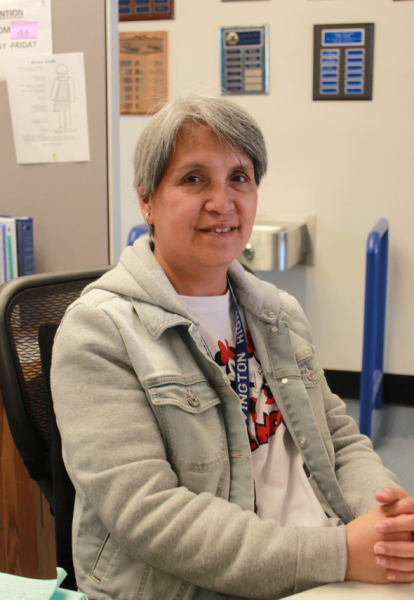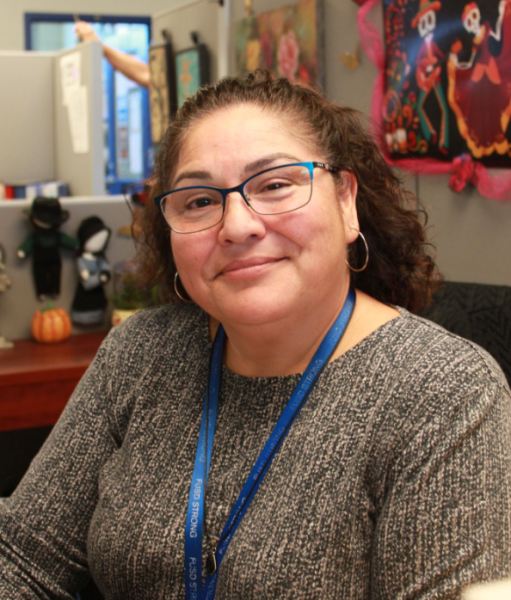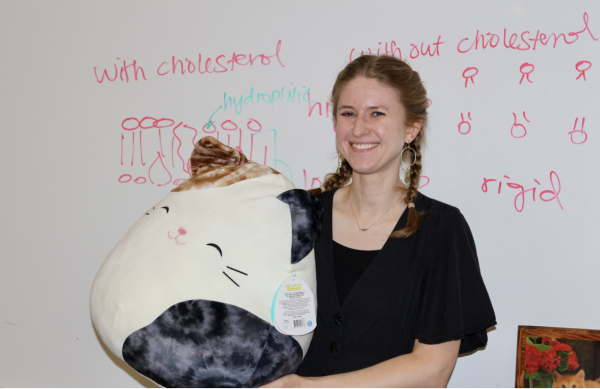Reopening Negotiations: From the Teachers’ Perspective
After FUSD walked away from negotiations with FUDTA over reopening, many felt unsatisfied with the board, the union, or both. We interviewed three teachers to get their perspective on the failed negotiations. Here’s what they had to say.
Jump to:
Anonymous Teacher
This year, I think the challenges for many teachers have really been trying to navigate the system effectively, so that it works for both the teacher and the student. You know, in the beginning, it was just a hot mess of us all trying to figure out: how do we, number one, avoid Zoom fatigue? For so many of us, especially if you do lectures like my classes, trying to do some kind of lecture and then also have a Socratic seminar every week, you realize very quickly, you could not do that in that space without feeling exhausted by the end of the day.
I was pretty active in sharing my opinions about what’s going on with my classes. I think that while I’m not involved in the leadership for the union, I was really aligned with Victoria Birbeck. I can’t speak to elementary school because that’s a whole different area of the contract, but what I can say about secondary is that what they were expecting us to do was a fantasy of indentured servitude.
What I can say about secondary is that what they were expecting us to do was a fantasy of indentured servitude.
Anonymous Teacher
That is really what I felt was so insulting, is that they were going to require all secondary teachers to be back in an empty classroom and also to have to teach any incoming students that wanted to drop in. They were expecting us to be able to do that simultaneous teaching, so that the student would be in the online class, but let’s say that a student didn’t come in prepared that day with their technology. The district also was saying, they’re not going to provide that technology for the students, and so they’re not going to provide those Chromebooks that they would need. So that means that I would have to be teaching simultaneously: I’m teaching my Zoom class, and then I’m also having to ask, “Did you get this and that? Are you prepared with this? Okay, now I want you to speak, and you’re in the Socratic.”
I don’t even know if we could even get all of that happening on the same WiFi system. I was talking to a student who was actually on campus, and they were using the WiFi and it dropped so many times. So there’s no way that our WiFi system would have been able to handle all the teachers on Zoom at the same time with multiple students coming in, and we had no assurance that that was going to be fixed by the time we came back. They didn’t test any of this out; they’re forcing us back into the classroom as an arbitrary measure, like that very vocal one-third of parents who are insisting that students immediately go back on campus.
They didn’t test any of this out; they’re forcing us back into the classroom as an arbitrary measure, like that very vocal one-third of parents who are insisting that students immediately go back on campus.
Anonymous Teacher
The plan put forth by Victoria Birbeck was, in order to meet that maybe one-third that wants to come on to the campus, we’re going to have these volunteer teachers, about maybe a hundred or so, that will be able to handle these cohorts or small groups of learning. So you have one teacher that can say, “Okay, I’ve got 13 students in this room, and they’re all going to be in different classes, and I’m going to help them.” And what we couldn’t agree on was that the district and the board were saying: “Okay, well, those teachers also need to be teaching their regular class.” So we couldn’t agree on that, because the teachers were asking for an extra stipend. What you saw in the Mercury News article was Larry Sweeney saying, “Oh, this would cost the district more money, it will cost us millions of dollars” and the fact is that it actually would not have cost us that much money at all. The cost would have been about half a million dollars, is what Birbeck contends.
Why we didn’t agree to even the primary demands was because in order to do this hybrid model, the elementary teachers were wanting a stipend that would be about a half million dollars and for secondary, because we couldn’t agree to the other things in terms of the simultaneous teaching and the groupings on the secondary campus, they walked away from the table. We are actually legally bound with a contract, our memorandum of understanding (MOU), that we have until the end of this year. But another thing that’s wrong too is CJ Cammack, the Superintendent, said in that article, which was insulting, is that they can force us back on campus and that is not true, we would have taken them to court for that if they tried to force us back on campus.
They walked away from $10 million, that could have gone to our school to help with our facilities, to help with the WiFi and all these things. But they didn’t want to show that they were compromising with the teachers, because there’s so many parents in the community right now, that one-third, that are extremely vocal. Actually probably less than that, probably 5% or less that are vilifying teachers right now for not wanting to have kids back. We want to make sure that our job is honored with respect, that we’re not being asked to do things that resemble indentured servitude.
I think we’ve all adapted to a certain degree to this type of work. I know there’s some students that really enjoy distance learning, if they have a strong connection with maybe their family and friends outside of school. Of course I miss human interaction and that kind of energy that you get from a real classroom, but I think we have definitely made the most of it in this situation.
Mr. Goulet
I had mixed feelings about the district’s reopening decision. I understand that our district just walked away from negotiating. From what I understand, our union and the district had come to an agreement for K-8 on what the plan was for reopening and going back to school and what protocols would be, and then they were working on high school. Then, the district said we’re just going to implement the same things that we’re going to be doing through K-8 and our union wasn’t having it; they weren’t going to budge.
I heard about what the plan was for us for high school and it sounded like we were going to be given a little cohort of students of maybe five to ten students but they wouldn’t even be our students. It would be just this cohort of kids on their computers attending their classes virtually throughout the day, just in our classroom though, and I’m still going to be up in the front of my classroom teaching my classes virtually. What? That was what you came up with? I didn’t really agree with that. I felt like that’s not a good solution or a reason for us to be going back to school.
That was what you came up with? I didn’t really agree with that. I felt like that’s not a good solution or a reason for us to be going back to school.
Mr. Goulet
I really think we should have been more open; there should have been different options. If I remember correctly, I heard that of the high school parents who took the reopening survey, 15 percent said that they want their kids to return or something like that, a really low number. So even if I have a small portion of my students in my classroom, they can at least have some semblance of a high school experience for a short period of time. I mean, I can multitask occasionally, like I could be teaching virtually and they’re just listening the whole time; I have a SmartBoard and they can see what’s going on. I feel like it was possible but the district was just running out of time to get the money anyway.
I cannot do this for another year. Like the students can’t do this for another year, or even for half of a year. The amount of contracts that I have between Mrs. Gavin’s class and my class for the first semester is more than we had for both of our classes for all of last year.
The amount of contracts that I have between Mrs. Gavin’s class and my class for the first semester is more than we had for both of our classes for all of last year.
Mr. Goulet
If I’m being honest, I gave a lot of contracts to kids who were nowhere close to having them normally, when no one should be failing any classes this year. I have no idea what your life is like outside of this tiny little thing that I control. So that’s what a lot of kids are arguing: that there’s so little structure, or follow through outside of class.
The district and the union have all summer. How we felt was, we’re asking questions like, “Hey, what’s going on? What’s the status of this?” and we hear nothing. “Oh, we can’t, there are no definitives, we don’t really know.” And that was our admin; they didn’t know. Then all of a sudden, “Oh yeah, that’s not gonna happen.” So it’s very frustrating.
I’m imagining school next year is going to be some type of a staggered thing, like not all students are going to be on campus all the time. I’m imagining there’s going to be an A group and a B group or something. I’m imagining that there are still going to be some parents that are not comfortable having their kids return yet, but that’s so far from now.
Ms. Burton
I feel like the district didn’t meet enough to come up with a cohesive plan for how this was going to look, and then they tried to rush it through. Like at the start of the year we were still negotiating about a schedule the day before classes started so they have put us off; they have not met with us as teachers, they’ve never asked us what we think should happen. They came up with these arbitrary rules, and they’re not doing the job, we are. If you want to make a change, it better be for their students’ benefit and not for their harm.
They came up with these arbitrary rules, and they’re not doing the job, we are. If you want to make a change, it better be for their students’ benefit and not for their harm.
Ms. Burton
My feeling was if you don’t have a plan, you’re harming the kids because they’re finally in a system of understanding what’s expected, what the flow is going to be, and what the schedule is going to be. The last thing was, show me one single teenager who wants to get out of their pajamas and commute to school when they’re still going to be learning on Zoom. If they’re having instruction with their classmates for your class, then of course, they want to do that, and of course, we want to do that; we want them to socialize. But that’s not what’s happening. You are going to be in a room with everybody with their headphones on, and everybody with a different class, plus you up in the front teaching on Zoom, so everything’s the same except different and harder.
You are going to be in a room with everybody with their headphones on, and everybody with a different class, plus you up in the front teaching on Zoom, so everything’s the same except different and harder.
Ms. Burton
There are ways to do it, but you have to think, plan, negotiate, compromise, and listen in order to make it happen.
I’m a union representative on FUDTA and our bargaining team gave them a list of 30 possible meeting dates and they chose three. That’s just for February and March, by the way … So they weren’t willing to sit down and hammer it out. I think that they were hoping that we would, like we’ve done before, just be ground down. And just because of their PR campaign, we would just accept whatever they have to offer, b, but this time, teachers were like, “No, no, no. Enough is enough.”
Mostly, the demands were about: how is this going to enrich the learning experience of our students? And how is this going to be safe for us? Lots of our students live with their grandparents or live in multigenerational families. They’re going to go home after being at school the whole time and bring that to their grandparents; that’s not okay. So a lot of it was about not just the teacher’s health, but the student’s health and their family’s health. The biggest demand was: think this through, all the way, given our student population and the circumstances that they have all been navigating this entire time.
Our union has already sent them, again, a list of possible times to meet to discuss a new MOU for next school year, so that we could plan accordingly and that we would know by July, so that teachers can go off and redo their lesson plans because we know it’s going to be different instead of not even knowing what the schedule is going to be until the day before classes start. We want to figure it out, especially when we’re in the middle of a pandemic and you can’t control anything about what tomorrow is going to look like but you do know what you’re going to do with those 65 minutes you have with your kids. That’s really crucial for everyone’s mental health.
What I would like to see happen in the agreement is: if the numbers of COVID are this, this is what we do. If numbers of COVID are like this, this is what we’re going to do. And we’re going to commit to this schedule and this way of operating for an entire semester. We’re not going to change in the middle; it’s the numbers on August 15 are this, then we have this schedule, the numbers are that on August 15, then we have that schedule, period. Two options, being adaptable and flexible, considering what’s going on with COVID. To me, that is a very intelligent, accurate way to deal with the current context we’re living in that is unpredictable.
I really miss interacting with students, being able to have conversations, being able to walk around the room, and being able to touch their computer and show them what I mean, because it’s really frustrating to be like, share your screen and so on. My preference is that it’s safe, and that it supports the mental health of all of us teachers, parents, families, and students. If we can come up with an environment to do that, that would be great. I became a teacher so I could interact with and have community building in my classroom, and it’s really hard to build community on Zoom. So even though the work that they’re making and the way the students are showing up is fantastic, it’s not as healthy as being in-person for their mental health. My preference is the safest, most supportive, most well-thought-out, planned way of having the school year.







